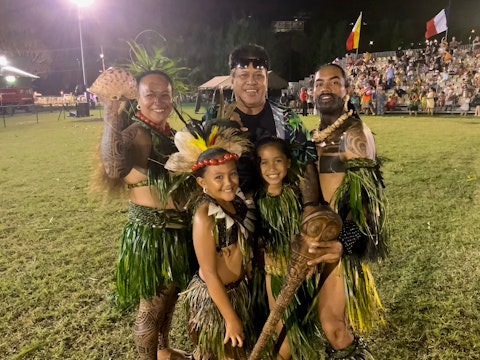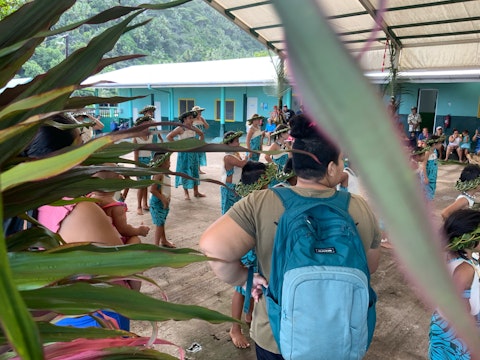Water, Who Are You?
When the Frenchman asks the question: Qui es-tu?, and the Englishman: Who are you?, the Polynesian renders it in his native language as O vai 'oe?, or by Ko vai koe?, which literally translates as: What water are you from?, meaning "What water are you made of?", or "What source do you come from?", or more precisely: To which source do you belong?, or again: To which marine animal do you belong? This is to say, in an obvious way, that, in the Polynesian world, human beings and water are one and the same entity.
When the Frenchman asks the question: Qui es-tu?, and the Englishman: Who are you?, the Polynesian renders it in his native language as O vai 'oe?, or by Ko vai koe?, which literally translates as: What water are you from?, meaning "What water are you made of?", or "What source do you come from?", or more precisely: To which source do you belong?, or again: To which marine animal do you belong? This is to say, in an obvious way, that, in the Polynesian world, human beings and water are one and the same entity.
Among the objects that adorn the interior of the marae (open-air temple) is a red-colored figure carved in wood which, according to the Tahitian Academy, suggests a human silhou-ette. His name is unu. Its relationship to water is obvious since this name is used in the composition of the words, anu (saliva), anua (rainbow), inu (drink or action of drinking). Pai-nu defines a drift on the water, for pa (protection) and inu (water), like a boat placed on the water.
In addition, water, by its constitution, has the characteristic of taking the shape of the con-tainers in which it is found. It is a bottle, it is a vase, it is a river winding at the bottom of a valley. It knows how to bring a population together, because it is near water sources and rivers that it settles. It is, in essence, constitutive of life.
When we know that this life begins in water, that the child in his intrauterine life is bathed in a liquid, we can only admire this conception which makes water and the human being a common constitution, 70% of them are assured.
In the Marquesan language, a person of extreme kindness, who adapts to all situations, who helps people in difficulty, in short, a humanist, is qualified by the quintessence of water: te vai o te 'enata.
French version of the text here.






